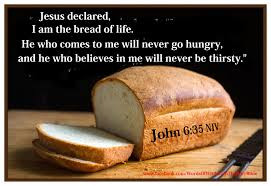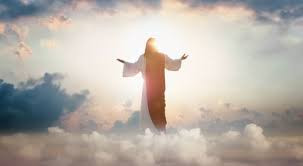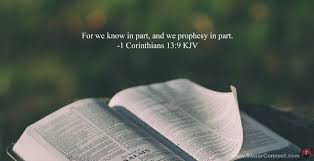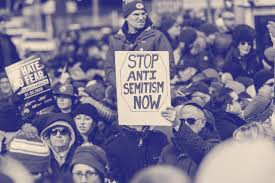
BY PROSPER TINGINI
I was born and raised in a rural environment, under the umbrella of many customary practices. However, my mother was a devout Christian who exercised strictly God’s principles through the guidance of the Bible.
So we grew up under a dual system of religion, as our father — though a Christian himself — would still want to observe and maintain some traditional values and practices. Even today, there is still this tug-of-war within the Christian sectors, with some advocating for the abolishing of some cherished customs versus our traditional leaders who are still clinging to those cultural practices.
I have managed to establish some links between some of the customary practices and the scriptures, especially pertaining to some directives from the Lord our God. Most of our culture practices were derived from some instructions given to mankind by God at some point since creation. Many of these directives have since been severely distorted by man to represent entirely different purposes and meanings.
Many rural households which are keeping cattle as a form of wealth still want to ensure that there is one bull dedicated to a “fallen ancestor” commonly referred to as “bhuru remusha”. These bulls enjoy certain privileges. What has been misdirected by man is the dedication of the bulls to the dead. It is tantamount to praying to and offering sacrifices to “dead gods”, when sacrifices should only be to the only living God. The honoured ancestor, often referred to as “mudzimu” [guardian spirit] would in essence be worshipped, taking the role of God; in violation of His first commandment which reads, “You shall have no other gods besides me,” (Exodus 20:3).
In the Old Testament, which is still part and parcel of the Bible, God preserved bulls for particular sacred rituals or as offerings. Sacrifices through domestic animals were practiced by mankind from the dawn of humankind. The two sons of Adam and Eve gave different offerings to the Lord. In Genesis 4:3-4, we read: “In the course of time Cain brought to the Lord an offering of the fruit of the ground, and Abel brought the firstling of his flock and of their fat portions”. The sacrificial offerings of animals continued throughout Abrahamic times. They were reinforced by the Yahweh to the children of Israel during the Exodus. He ensured that most of His instructions were written down and preserved for the sake of all future generations of mankind. These statutes were carried along by the Israelites under the cover of “The Ark of the Covenant” to maintain existence. That is why these statutes have survived to this very day. It is for our present generations to either align with or to dump them.
Leviticus 1:1-3 reads: The Lord called Moses and spoke to him from the tent of meeting, saying, “Speak to the people, and say to them; ‘When any man of you brings an offering to the Lord, you shall bring your offering of cattle from the herd or flock. If the offering is a burnt offering form the herd, he shall offer a male without blemish; he shall offer it at the door of the tent of meeting, that he may be accepted before the Lord.” This, however, emanates from what is contained in the Book of The Covenant with regards to the consecration of selected choices of offerings by the Lord our God. An instruction within the Book reads; “The first-born of your sons you shall give to me. You shall do likewise with your male cattle and with your sheep: seven days it shall be with its mother. On the eight day you shall give it to me,” (Exodus 22:30).
We read from the New Testament that Jesus Christ, as the first-born son, was also consecrated to his Heavenly Father by his biological mother Mary, accompanied by her husband Joseph. Luke 2:21-24 recounts: And at the end of eight days, when he was circumcised, he was called Jesus, the name given by the angel before he was conceived in the womb. And when the time came for the purification according to the law of Moses, they brought him up to Jerusalem to present him to the Lord (as it is written in the law of the Lord, ‘Every male that opens the womb shall be called holy to the Lord’) and to offer a sacrifice according to what is said in the law of the Lord”.
- Chamisa under fire over US$120K donation
- Mavhunga puts DeMbare into Chibuku quarterfinals
- Pension funds bet on Cabora Bassa oilfields
- Councils defy govt fire tender directive
Keep Reading
The Lord directed (Deuteronomy 19-23): “All the firstling males that are born of your herd and flock you shall consecrate to the Lord your God; you shall do no work with the firstlings of your flock. You shall eat it, you and your household, before the Lord your God year by year at the place which the Lord will choose. But if it has any blemish, if it is lame or blind, or has any serious blemish whatever, you shall not sacrifice it to the Lord your God. You shall eat it within your towns; the unclean and the clean alike may it eat, as though it were a gazelle or a hart. Only you shall not eat its blood; you shall pour it on the ground like water.” (This explains why we cut the throats of animals or fowls we eat for food to drain out blood). The origin of the cultural practices of preserving the “sacred bulls” has its roots in the male firstling offerings prescribed by the Lord. The original purpose was to sanctify them as offerings to our God.
The secondary purpose for the keeping of special bulls was so that they could be used for the cleansing of our sins, i.e. before the coming of Christ. It was the blood of Jesus Christ, as the sacrificial lamb that cleansed our sins. Prior to that it was the blood of these bulls (or lamb) that was used to cleanse human sins. To expand on the cleansing purpose of the blood bulls, Leviticus 4:1-4 reads: For the sin offering, the Lord said to Moses; “Say to the people, if anyone sins unwittingly in any of the things which the Lord has commanded not to be done, and does any one of them, if it is the anointed priest who sins, thus bringing guilt on the people, then let him offer for the sin which he has committed a young bull without blemish to the Lord for a sin offering. He shall bring the bull to the door of tent of meeting before the Lord and lay his hand on the bull, and kill the bull before the Lord.”
Leviticus 4:13-15 adds: “If the whole congregation commits a sin unwittingly and the thing is hidden from the eyes of the assembly, and they do any one of the things which the Lord has commanded not to be done and are guilty; when the sin which they have committed becomes known, the assembly shall offer a young bull for a sin offering and bring it before the tent of meeting; and the elders of the congregation shall lay their hands upon the head of the bull before the Lord and the bull shall be killed before the Lord.” Through word of mouth transmissions, these instructions of God have been turned upside down to give new interpretations some of which are now in honour of the dead.
- Prosper Tingini is the scribe of the Children of God Missionary Assembly — God’s messengers. Contact details: Mobile: 0771 260 195. Email address: [email protected]











